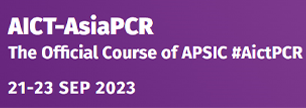


- NEWS
-
-
Scientific LibraryAcute Coronary Syndrom ASCVD Prevention Bifurcation Stenting Cardio-Oncology Congestive Heart Failure DAPT Duration Drug Coated Balloon Fractional Flow ReserveCases VideosE-LearningIndustry Insights
- LIVE REVIEW
-
 Article Link
Article Link

PCI Strategies in Patients with Acute Myocardial Infarction and Cardiogenic Shock
Thiele H, Akin I, Sandri M et al.
KEYWORDS
PCI strategy; Coronary Disease/Myocardial Infarction; Cardiogenic Shock
BACKGROUND - In patients who have acute myocardial infarction with cardiogenic shock, early revascularization of the culprit artery by means of percutaneous coronary intervention (PCI) improves outcomes. However, the majority of patients with cardiogenic shock have multivessel disease, and whether PCI should be performed immediately for stenoses in nonculprit arteries is controversial.
METHODS - In this multicenter trial, we randomly assigned 706 patients who had multivessel disease, acute myocardial infarction, and cardiogenic shock to one of two initial revascularization strategies: either PCI of the culprit lesion only, with the option of staged revascularization of nonculprit lesions, or immediate multivessel PCI. The primary end point was a composite of death or severe renal failure leading to renal-replacement therapy within 30 days after randomization. Safety end points included bleeding and stroke.
RESULTS - At 30 days, the composite primary end point of death or renal-replacement therapy had occurred in 158 of the 344 patients (45.9%) in the culprit-lesion-only PCI group and in 189 of the 341 patients (55.4%) in the multivessel PCI group (relative risk, 0.83; 95% confidence interval [CI], 0.71 to 0.96; P=0.01). The relative risk of death in the culprit-lesion-only PCI group as compared with the multivessel PCI group was 0.84 (95% CI, 0.72 to 0.98; P=0.03), and the relative risk of renal-replacement therapy was 0.71 (95% CI, 0.49 to 1.03; P=0.07). The time to hemodynamic stabilization, the risk of catecholamine therapy and the duration of such therapy, the levels of troponin T and creatine kinase, and the rates of bleeding and stroke did not differ significantly between the two groups.
CONCLUSIONS - Among patients who had multivessel coronary artery disease and acute myocardial infarction with cardiogenic shock, the 30-day risk of a composite of death or severe renal failure leading to renal-replacement therapy was lower among those who initially underwent PCI of the culprit lesion only than among those who underwent immediate multivessel PCI. (Funded by the European Union 7th Framework Program and others; CULPRIT-SHOCK ClinicalTrials.gov number, NCT01927549.)




















